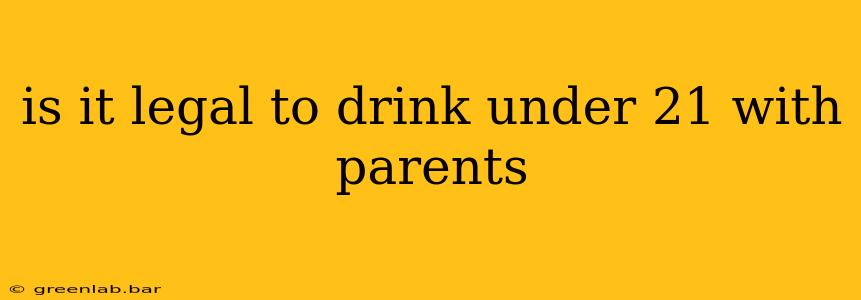Is It Legal to Drink Under 21 with Parents? A Comprehensive Guide to Parental Consent and Minor Consumption Laws
The simple answer is: no, it's generally not legal to drink under 21, even with parental consent. While some exceptions exist, these are rare and highly specific. The overwhelming majority of states and jurisdictions in the United States maintain a minimum drinking age (MLDA) of 21, and this law applies regardless of parental permission.
This seemingly straightforward issue involves several nuanced legal aspects we'll explore in detail.
Understanding the Federal Minimum Drinking Age Act (FMDAA)
The core of the legal landscape surrounding underage drinking rests on the FMDAA. Passed in 1984, this federal law withholds highway funding from states that don't maintain a 21-year-old MLDA. This strong incentive has resulted in a nationwide standard, effectively making underage drinking illegal across the country.
While parents might believe they're exempting their children from legal repercussions by allowing consumption at home, this isn't legally sound. The FMDAA doesn't explicitly address parental consent, but the underlying principle is clear: the law aims to protect young people from the risks associated with alcohol. Parental permission does not override this crucial public health and safety measure.
Exceptions and Nuances: The Gray Areas
While incredibly rare, some extremely limited exceptions may exist under specific state laws. These often relate to religious practices or very specific cultural ceremonies, and they usually require legal permits or very strict oversight. These exceptions are highly unlikely to apply to casual home consumption.
It's crucial to emphasize: These exceptions are extremely narrow and are not a license for parents to provide alcohol to their underage children. Attempting to utilize such an exception without meeting all legal requirements could lead to significant legal consequences for both the parents and the minor.
Potential Consequences of Underage Drinking
Ignoring the law carries significant risks:
- Legal Penalties: Minors caught drinking can face fines, community service, alcohol education programs, or even court appearances.
- Parental Liability: Parents providing alcohol to minors can face even steeper penalties, including fines, community service, and potential legal action.
- Social Consequences: Underage drinking can have lasting social and personal repercussions, including difficulty maintaining healthy relationships and accessing certain opportunities.
- Health Risks: Alcohol consumption during brain development poses serious health risks. These can range from physical and cognitive impairment to long-term addiction and health problems.
Responsible Choices: Protecting Young People
The overriding message here is that responsible choices are essential. The MLDA isn't arbitrary; it reflects a consensus that young people are at increased risk of harm from alcohol consumption. Parents have a crucial role to play in educating their children about the dangers of alcohol and promoting healthy, responsible behaviors.
Disclaimer: This information is for educational purposes only and should not be considered legal advice. Consult with a legal professional for advice specific to your situation. State laws vary, and this overview may not cover all specific exceptions or nuances.

